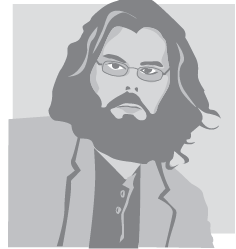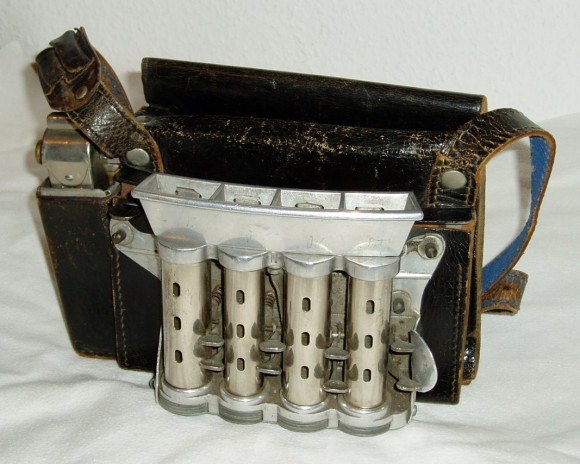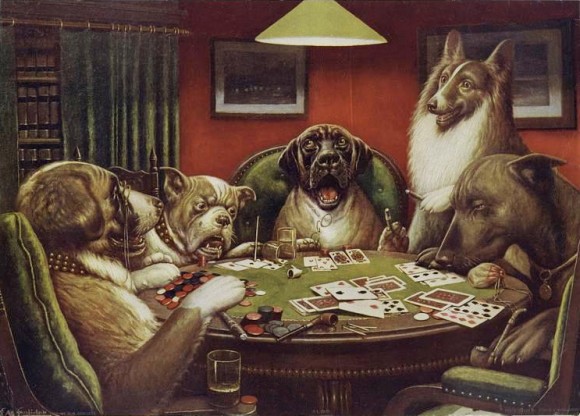aNewDomain — With over a billion dollars up for grabs in the national Powerball lottery, let’s take a second to look at the thing nobody really cares about: The odds. They used to be better.
— With over a billion dollars up for grabs in the national Powerball lottery, let’s take a second to look at the thing nobody really cares about: The odds. They used to be better.
In recent weeks, Powerball quietly added more numbers to the drum. For most of last year, your odds of winning the Powerball were one in 175 million.
Now they’re one in 292,201,338. If you’re a professional poker player, you want the odds of winning and the pot to be a good return on the investment you have to make – the bet. You want to bet an amount of money less in proportion to the pot than your chances of losing the bet. That is, if you have a one in seven chance of winning the pot and you bet one seventh of the pot, over the long run you will tend to break even.

So for the Powerball, poker thinking would have us betting $2 when the pot is more than double the odds of winning: $504,402,676+.
Over the long run, given a very long run, you’d tend to make more than you lost.
We can even get more technical and toss in the chances of winning less than the full pot. In Powerball, you can win by drawing the special ball (the Powerball) or the Powerball and only one other correct number – and earn back double your stake. The other prizes increase with more numbers matched. These odds range from one in 28 to double your money (terrible, terrible odds) to one in 11 million to win a million bucks – also atrocious odds.
But this kind of thinking only makes sense on a short scale.
Like the lifetime of a poker player, when it comes to the Powerball, we all tend to lose – even if we don’t play. The taxes from lotteries seem like a public good, except that we perceive we are spending a lot of lottery money on public goods (locally its wildlife, in other places education) and so we cut taxes that would ordinarily fund the things funded by the lottery. But actually, states that fund education with lottery sales spend 10 percent less on education than states that don’t.
 The next problem is that lottery mania is not at all harmless. I can afford $2 on a Powerball ticket, and that buys me a momentary fantasy that my drudgery might end one day. I can’t really hope for a productive retirement otherwise, and I certainly can’t hope that I could change the world. $800,000,000 in lottery cash, though – I could change the country with that kind of money. Change how business gets done. Buy my own politicians.
The next problem is that lottery mania is not at all harmless. I can afford $2 on a Powerball ticket, and that buys me a momentary fantasy that my drudgery might end one day. I can’t really hope for a productive retirement otherwise, and I certainly can’t hope that I could change the world. $800,000,000 in lottery cash, though – I could change the country with that kind of money. Change how business gets done. Buy my own politicians.
The thing is, people don’t spend $2 and move on. When the numbers get really high, they go crazy. Someone close to me works in a convenience store. He reports taking in $45,000 in the last three days in Powerball sales. People have come back each day to buy $100 in tickets. Poor people, people like me who can ill afford to gamble in this manner. None of them are going to win.
Statistically speaking, the number of winners compared to players is insignificant. In a clinical trial, we’d say there’s no correlation between buying a ticket and winning the lottery. Or buying 100 tickets.
From a mathematical standpoint, buying lottery tickets does not improve your chances of winning. What else could you do with that $100 – or the $98 difference between what I spent and what you spent – that would really, actually improve your life?
The real trouble is this: poverty.
For the average person, the odds don’t specifically matter that much. A couple of bucks on a dream … sure. Unlikely things happen all the time and one in 175 millino doesn’t seem that much different from one in 292 million. So what if it’s a bad investment? It always was. What else can you spend $2 on that makes you think your life might be better? That you might get a slice of the dream?
No wonder we all just want our chance.
The economy is in tatters. Don’t let the job reports fool you. We’re reportedly at “full employment,” but the jobs are mostly shitty. Low-wage service jobs with no benefits, cobbled-together part-time careers.
Our work doesn’t matter, and our voices don’t matter. Politically, who you vote for has no impact on what policies are implemented.
There, I said it. The point is, the government does not represent you. It does not represent you at all.
Listen. We’ve gone from a nation with unions and therefore reasonable workloads, retirement plans and health care to a nation where it doesn’t matter how hard you work. Privilege matters more than anything you can actually do.
You can work hard to earn a five- or even 10-percent raise, but you don’t have problems a 10-percent raise would solve. You have a collection of part-time jobs or lateral moves that don’t improve your position, your student loan debt up to your eyeballs and you have no chance of solving any of those problems.
So when a big Powerball jackpot comes along – and the new odds ensure winners will become even more sparse than the near-0 number they already are – people “invest” in tickets. But it really is an investment. It’s an investment in fantasy. And sure, we can all look down our noses at them, or scold them about their lack of sophistication, but let’s be serious here: If you want people to hope for something else, to invest in something else, then we have to have something else worth investing in.
What do you think the odds are of that happening? Powerball looks like a more likely bet to me.
For aNewDomain, I’m Jason Dias.
Cover image: By nathanmac87 (Powerball Float Uploaded by Anastasiarasputin) [CC BY 2.0 (http://creativecommons.org/licenses/by/2.0)], via Wikimedia Commons; image one: by LosHawlos(based on copyright claims). [GFDL (http://www.gnu.org/copyleft/fdl.html) or CC-BY-SA-3.0 (http://creativecommons.org/licenses/by-sa/3.0/)], via Wikimedia Commons; image two: “A Waterloo Dogs Playing Poker 2” by Cassius Marcellus Coolidge – This image is available from the New York Public Library‘s Digital Library under the digital ID 822816: digitalgallery.nypl.org ? digitalcollections.nypl.org. Licensed under Public Domain via Wikimedia Commons.













